VAD is not dying well: faith leaders
Local
South Australian faith leaders have issued a statement outlining their opposition to assisted suicide and their preference for high quality end of life care.
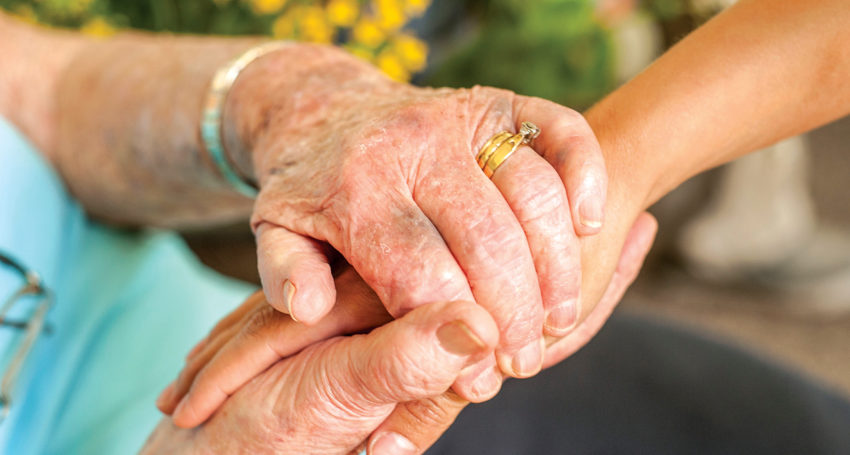
The statement, which was sent to Members of the House of Assembly prior to the final vote on the Voluntary Assisted Dying Bill, was signed by Catholic Archbishop of Adelaide Patrick O’Regan, Bishop Karol Kulczycki SDS of Port Pirie Diocese, Bishop David Altus of the Lutheran Church of Australia (SA and NT), Bishop Silouan of Sinope, Archiepiscopal Vicar of Adelaide, Greek Orthodox Archdiocese of Australia, and Mr Ahmed Zreika, president of the Islamic Society of SA.
Advertisement
The leaders aids voluntary assisted dying undermined human freedom because “the law seems to offer a misleading choice: you can choose to die horribly or you can take your own life”.
“High quality specialist palliative care means that death does not have to be horrible,” they wrote.
“High quality specialist palliative care also means that you do not have to take your own life to avoid a horrible death. High quality palliative care is not merely a third option; it is best practice.
“South Australians do not yet have universal access to such specialist palliative care. This problem should be addressed by providing everyone with access to this best practice end-of-life care.”
The faith leaders differentiated between direct action specifically intended to bring about the death of a person and the provision of medication to alleviate symptoms of pain and suffering and the withdrawal of medical treatments that promise “little or no benefit”.
“What is clear is that these legitimate practices are not well understood in South Australia. Many people believe that the medical fraternity – or indeed their religion – requires them to prolong life at all costs, regardless of the burden. Many people also think palliative care is like euthanasia because the ‘pain medications will kill you anyway’. Both of these misunderstandings must be dispelled.”
The faith leaders reaffirmed their support of “all efforts to empower the people of South Australia to make meaningful choices about their end-of-life care and to develop a world-leading healthcare system that genuinely takes care of South Australians from the cradle to the grave”.
The Adelaide Archdiocese has produced a brochure called Real compassion, love and care – an alternative to euthanasia which is being distributed to schools and parishes.
After an emotional debate in the House of Assembly on May 26, the VAD Bill will enter the committee stage on June 9 when amendments to the proposed bill will be put forward by members, including Steve Murray.
Mr Murray, the Member for Davenport, said one of the amendments he would put up was to enshrine the absence of coercion as a prerequisite. Another concerned conscientious objection for hospitals and residential premises.
Advertisement
“We need in my view to extend conscience and the right to object not just to individual health practitioners but to entities and in so doing respect their view and in particular give voice to the reality that we are talking about a voluntary process here,” he told Parliament.
“If we do not extend that right to those organisations, quite apart from anything else, at the risk of sounding trite, we take the ‘v’ for ‘voluntary’ out of the process in my view and substitute it with something akin to it being mandatory, etc. The point is that every other jurisdiction thus far that has enabled this legislation for conscientious objection has failed utterly to address it – it is all too hard – and as a consequence in those jurisdictions they operate in a void or in a vacuum.
“I am also interested in an annual audit for compliance purposes, and I am deeply committed to trying to get some changes or some proof insofar as palliative care is concerned. My plea is for compassion by everyone for everyone involved.”
Adelaide doctor Associate Professor Elvis Šeman, a member of the St Luke’s Guild, has written to MPs saying if they vote for VAD they are abrogating their duty to protect citizens from internal and external threats, including state-sponsored suicide.
He said medical opposition to euthanasia/VAD started about 2500 years ago with Hippocrates of Kos, who separated healing and killing roles for physicians. After physicians acquired an exclusive caring role, the ethics and practice of medicine flourished to reach the high standard of care achieved in 2021.
“This standard was achieved because Hippocratic medicine recognises that caring for patients and killing them are incompatible – allowing doctors to kill detracts from their ability to care, it halts the positive progress of medicine, and destroys patient confidence in doctors and nurses,” Dr Šeman said.
“SA has one full-time palliative medicine physician per 100,000 population, which is well below the 2/100,000 benchmark for Australia.
“The logical and ethical solution is to provide more palliative care services, not introduce patient killing to make up for the shortfall in services.”
He said there were a number of flaws in the legislation including no mandatory involvement of a palliative care specialist to ensure the patient was fully aware of all possibilities before killing themselves, the omission of a mandatory psychiatric assessment and the prescribing of a 6-12 month time frame for death when new and life-saving treatments were becoming available all the time.
The faith leaders’ statement can be viewed at www.adelaide.catholic.org.au.


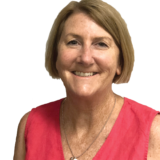
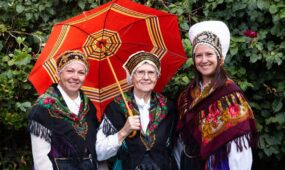
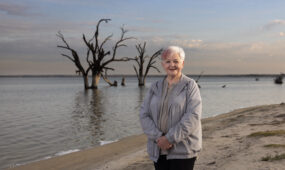
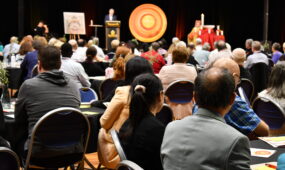
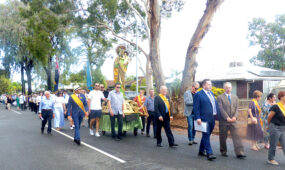

Comments
Show comments Hide comments